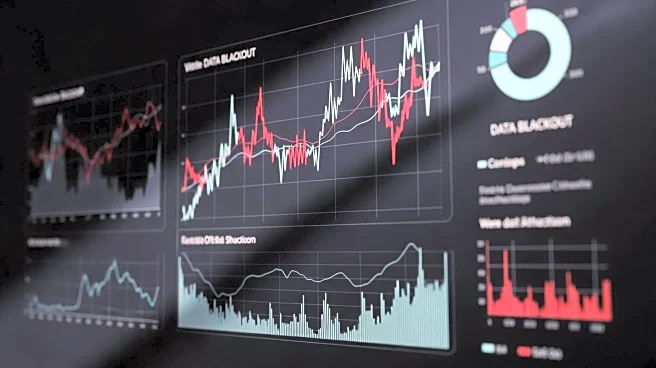What's Happening?
The ongoing U.S. government shutdown has led to a significant delay in the release of key economic data, including the Personal Consumption Expenditures report and the monthly retail sales report. These
reports are crucial for assessing consumer spending and inflation, which inform Federal Reserve policy decisions. The shutdown, which began on October 1, has left economists and policymakers relying on secondary data sources, complicating efforts to gauge the economy's health. The lack of official data raises concerns about potential missteps in economic policy and decision-making.
Why It's Important?
The absence of timely economic data due to the government shutdown poses risks to economic stability and policy accuracy. Decision-makers, including the Federal Reserve, rely on this data to make informed choices about interest rates and economic interventions. Without it, there is a heightened risk of policy errors that could exacerbate economic challenges, such as inflation or unemployment. The situation underscores the critical role of government data in economic planning and the potential consequences of prolonged shutdowns on economic governance.
What's Next?
If the shutdown continues, there is a possibility that October's economic data may be skipped entirely, creating a gap in historical economic records. This could lead to long-term challenges in economic analysis and forecasting. Economists and policymakers may need to develop alternative data collection methods or rely more heavily on private sector data, which may not be as comprehensive or reliable. The resolution of the shutdown will be crucial in determining the availability and accuracy of future economic data.









